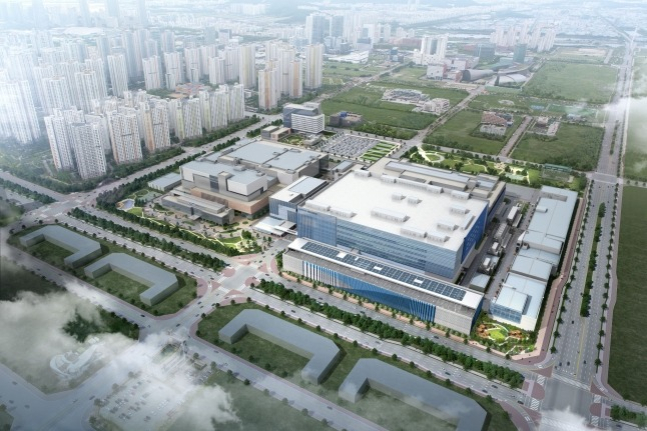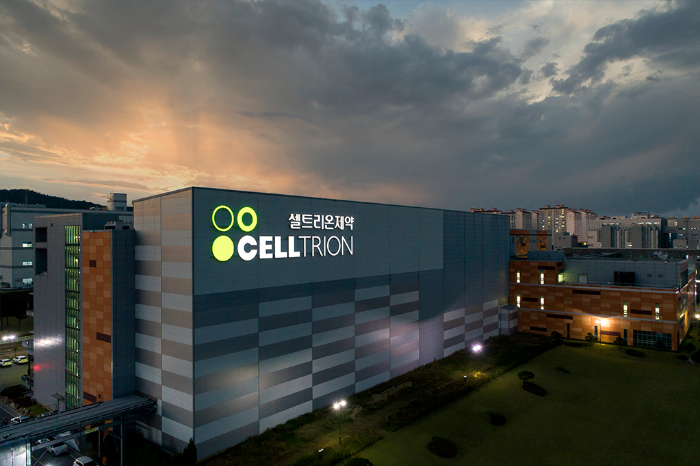Samsung Biologics, Celltrion pledge major CO2 cuts
They will use electric vehicles and low-carbon boilers to offset rising emissions from facility expansion
By Jul 10, 2023 (Gmt+09:00)
LG Chem to sell water filter business to Glenwood PE for $692 million


KT&G eyes overseas M&A after rejecting activist fund's offer


Kyobo Life poised to buy Japan’s SBI Group-owned savings bank


StockX in merger talks with Naver’s online reseller Kream


Meritz backs half of ex-manager’s $210 mn hedge fund



South Korea’s No. 1 biopharmaceutical company Samsung BioLogics Co. and No. 2 Celltrion Inc. produced higher CO2 emissions last year than in 2021 due to facility expansion to raise capacity, an inevitability in the process of business growth.
The two companies, however, have pledged all-out efforts to cut such emissions by using electric vehicles (EV) for work and introducing low-carbon boilers.
Samsung Biologics on Sunday said the CO2 emitted from its domestic business sites last year reached 163,993 tons of CO2 equivalent (tCO2eq), up about 25% from 130,867 in the previous year.
Celltrion, in its first sustainability report released this year, said it recorded 56,518 tCO2eq last year, a 3% increase.
Latecomers to the global bio industry, domestic players have recently expanded their production facilities under a business structure that undoubtedly leads to more emissions. Samsung Biologics plans to double its capacity to 1.3 million liters by 2030, with four additional plants alone to be built in Songdo International Business District of Incheon.
The company’s emissions in 2030 are projected to exceed 300,000 tCO2eq.

Samsung Biologics and Celltrion have a strategy to first reduce indirect emissions that can be cut immediately, namely from power consumption. By year’s end, the company will replace boilers at its plants with low-carbon models 6% more efficient that use liquefied natural gas.
It also installed 300-kilowatt solar power equipment on the roof of its No. 4 Plant.
Due to the nature of the pharmaceutical and bio industries, a large amount of CO2 is emitted in the process of importing raw materials from outside. So the strategy is to speed up greenhouse gas reduction by all suppliers of raw and subsidiary materials.
Samsung Biologics by 2050 aims to eliminate 100% of emissions from its supply chain. And last year, more than half of Celltrion’s newly ordered business vehicles were eco-friendly models such as EVs.
Write to Jeong Min Nam at peux@hankyung.com
-
 Bio & PharmaSamsung Biologics wins $897 mn in two deals with Pfizer
Bio & PharmaSamsung Biologics wins $897 mn in two deals with PfizerJul 04, 2023 (Gmt+09:00)
1 Min read -
 Bio & PharmaCelltrion Healthcare launches Humira biosimilar Yuflyma in US
Bio & PharmaCelltrion Healthcare launches Humira biosimilar Yuflyma in USJul 04, 2023 (Gmt+09:00)
1 Min read -
 Bio & PharmaCelltrion wins phase 3 IND approval for Ocrevus biosimilar in US
Bio & PharmaCelltrion wins phase 3 IND approval for Ocrevus biosimilar in USJun 15, 2023 (Gmt+09:00)
1 Min read -
 Bio & PharmaCelltrion to expand biosimilar portfolio to 11 by 2025
Bio & PharmaCelltrion to expand biosimilar portfolio to 11 by 2025Jun 13, 2023 (Gmt+09:00)
1 Min read -
 Bio & PharmaSamsung Biologics to double production by 2032; eyes ADCs, M&As
Bio & PharmaSamsung Biologics to double production by 2032; eyes ADCs, M&AsJun 07, 2023 (Gmt+09:00)
4 Min read -
 Bio & PharmaCelltrion gets FDA approval for Humira biosimilar CT-P17
Bio & PharmaCelltrion gets FDA approval for Humira biosimilar CT-P17May 24, 2023 (Gmt+09:00)
1 Min read -

-
 Bio & PharmaSamsung Biologics to invest $762 mn for 5th CDMO factory
Bio & PharmaSamsung Biologics to invest $762 mn for 5th CDMO factoryMar 16, 2023 (Gmt+09:00)
2 Min read -
 Chief ExecutivesSamsung Biologics CEO focuses on global business
Chief ExecutivesSamsung Biologics CEO focuses on global businessJan 26, 2023 (Gmt+09:00)
1 Min read


